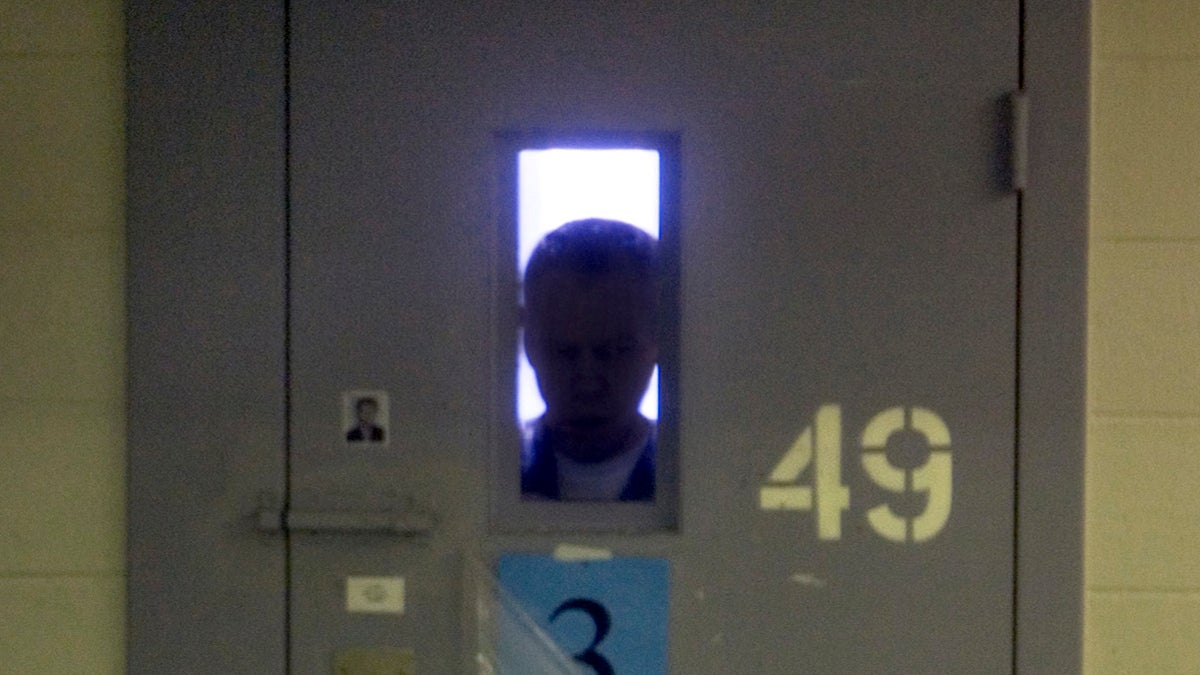Prisons hold 10 times as many mentally ill people compared to state hospitals

A mentally ill man is silhouetted by his cell's window inside a maximum-security prison in Idaho, where he was sent for treatment because there is no where else for him to go. (AP Photo/Troy Maben, file)
Prisons have become the country’s holding tanks for people with severe mental illnesses. That may not be news, but a new report from the Treatment Advocacy Center puts some bleak numbers on this issue.
In the 1970s, as state hospitals across the country began shutting down, about 5 percent of prisoners had serious mental illness. By the 1990s, it was 15 percent. The Treatment Advocacy Center report says now that number is 20 percent. In fact, 10 times as many people are in prisons — over 350,000 — as are in state hospitals — about 35,000.
Psychiatrist E. Fuller Torrey headed the project. He says these high numbers have made matters worse in prisons. “Solitary confinement or isolation is very widely used for people with severe mental illnesses in jails and prisons, and it usually makes their symptoms worse,” Torrey said. “It’s inhumane the way it’s used.”
Efforts are under way in Pennsylvania to curb the use of solitary confinement, after a federal report condemned the practice as inhumane. John Wetzel, secretary of the state department of corrections, says some changes have been made already.
“We now have psych staff having input on whether the behavior they exhibited that breaks the rule is a byproduct of their mental health state or a conscious behavior,” Wetzel said.
If the behavior was due to their mental illness, Wetzel says staff will try to avoid resorting to solitary confinement.
E. Fuller Torrey says the problem is made worse in Pennsylvania because prisoners refusing treatment have to be brought to state hospitals for involuntary treatment — and those facilities are overcrowded.
Torrey adds that nationwide imprisoning mentally ill people has created a revolving-door problem.
“In most cases not then hooked with a treatment facility in the community, and they end up back in jail and prison on a very regular basis,” he said.
Torrey says prisons are not equipped to serve as mental health treatment facilities — and many prisoners come out with problems worse than what they had when they entered the system.
WHYY is your source for fact-based, in-depth journalism and information. As a nonprofit organization, we rely on financial support from readers like you. Please give today.


